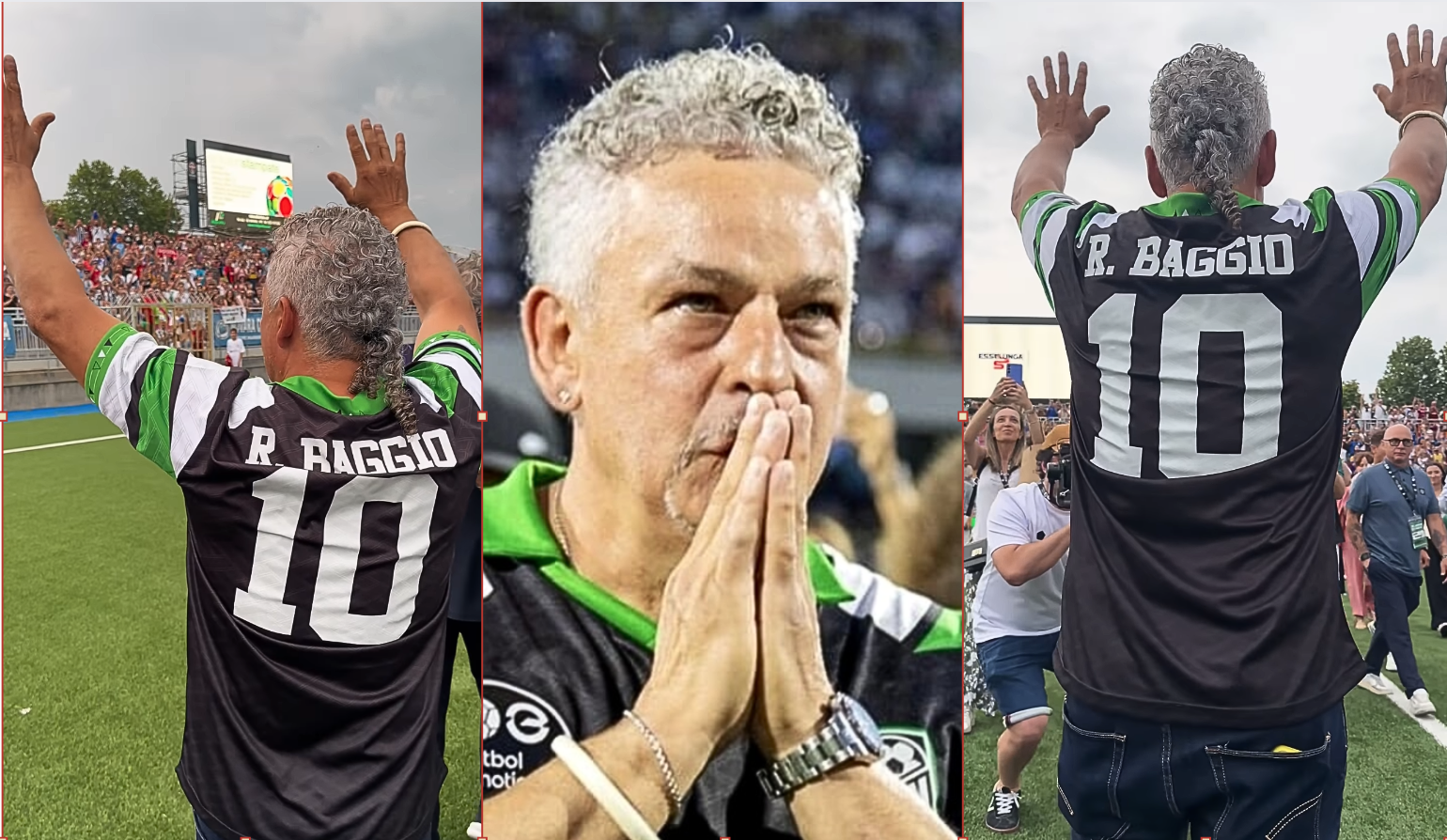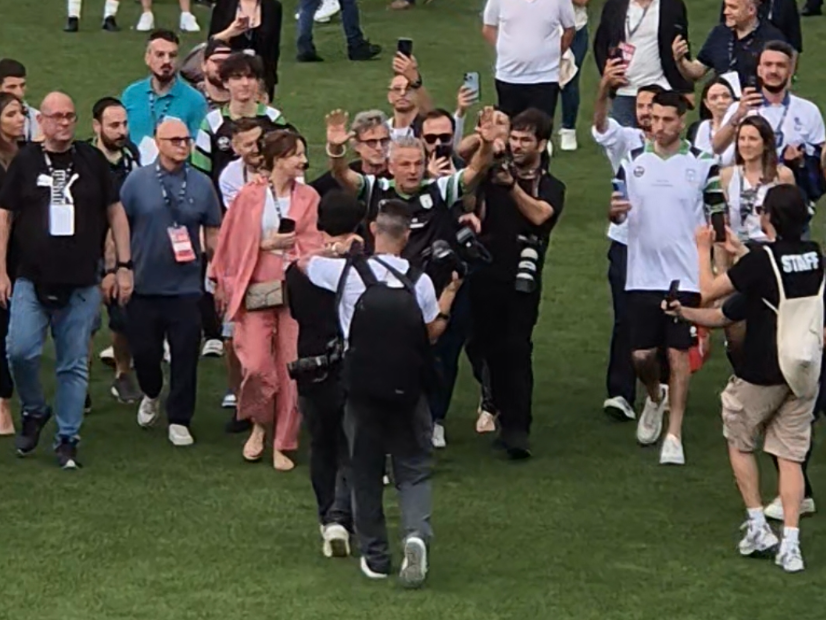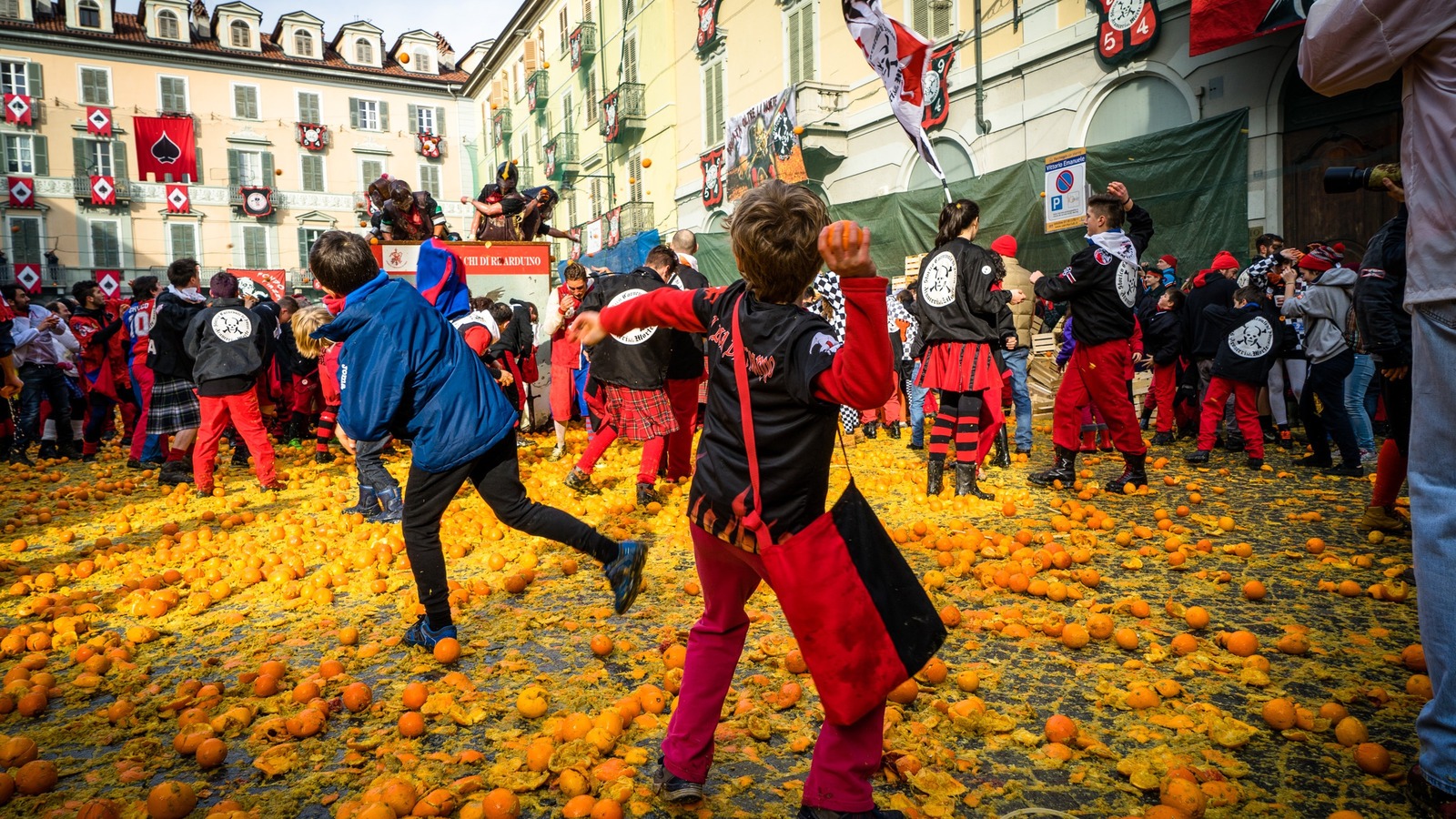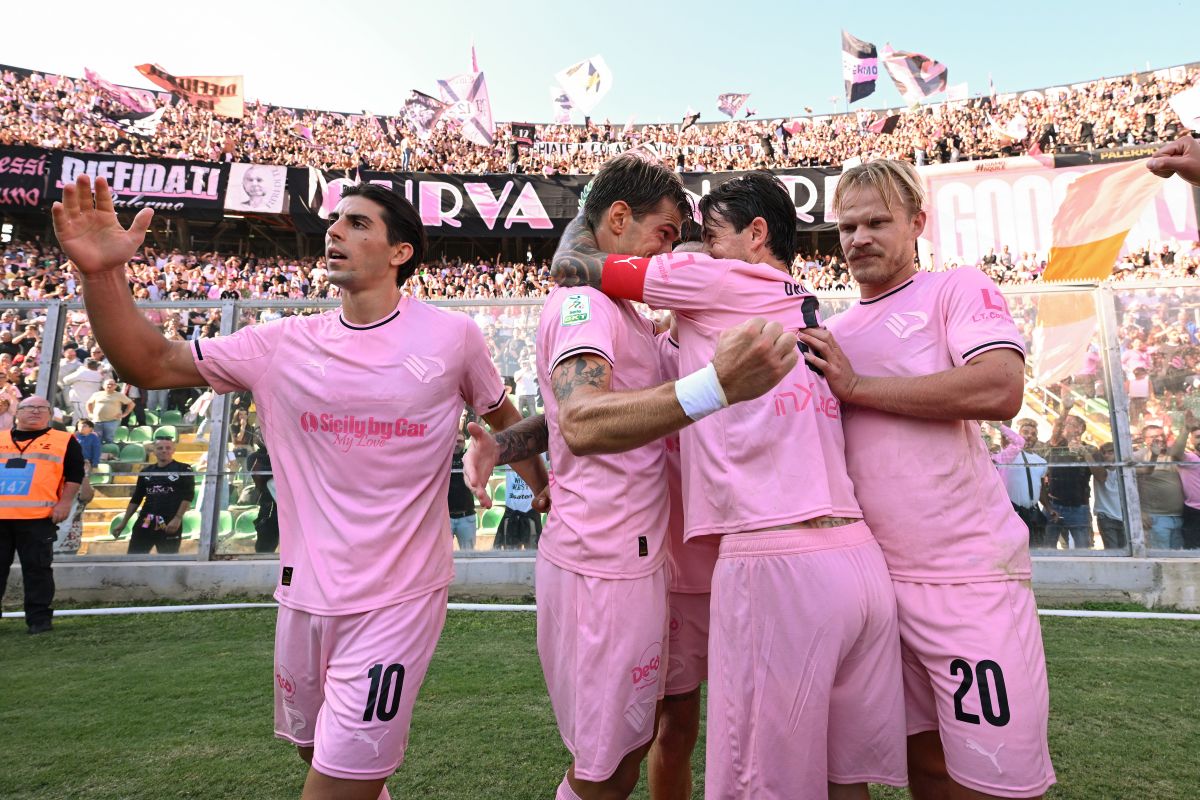
“Da quando Baggio non gioca più, non è piu’ domenica.”
This immortal line from Cesare Cremonini’s 2005 song ‘Marmellata #25’ has come to define what many fans of the Italian game feel about modern-day Serie A since Roberto Baggio’s final match. It’s been a full two decades since Il Divin Codino strode out onto the white lines of a football pitch in a competitive game.
His final dance with the ball came on May 16 2004 against newly-crowned Serie A champions Milan in an emotionally-charged game at San Siro. Baggio departed the stage six minutes from the end, and his embrace with Paolo Maldini left many of the 80,000 spectators in the audience weeping.
It really was the end of an era, the end of Serie A’s golden age as the greatest league in the world — arguably the greatest league in the history of the sport, and Sundays truly haven’t been the same.
Yet outside the Stadio Silvio Piola in Novara on a hot Sunday afternoon in early July, there was the sense that time had reversed and Baggio was still playing. The 12,000-strong crowd had arrived from various parts of the country just to catch a glimpse of Baggio, many of whom included kids who weren’t even born when he was gliding past defenders with alarming ease.
People from across the length and width of the boot descended on Novara, an hour’s drive from Milan just across the Piedmont border, to be part of Operazione Nostalgia’s seventh event celebrating the glory years of football.
People wearing shirts from all clubs, big and small, Italian and non-Italian, had mostly come for one reason: to see Baggio. This felt more akin to a pilgrimage than a reason to celebrate a time in the game’s history when it simply used to be better. While some fans spoke of coming to see other headline acts such as Andriy Shevchenko, Javier Zanetti, Diego Milito and Antonio Di Natale, all eyes were on Baggio.
“In terms of players, I’m looking forward to seeing every single player, but for what happened a couple of weeks ago, Roberto Baggio,” says Novara local and fan Massimiliano. “He’s a great man who has demonstrated yet another time that, on psychological and physical levels, for what happened to him, we can only say thank you to him for attending.”

Novara rallies around Baggio
Baggio’s house had been broken into by masked men when the 1993 Ballon d’Or winner was at home with his family watching Italy’s Euro 2024 game against Spain. The former Italy great suffered a blow to the head and his family locked in a room for close to an hour while the burglars stole jewellery.
Understandably, Baggio’s participation was doubtful, yet it was confirmed a couple of days before the event that he would indeed attend. Massimiliano’s nine-year-old son doesn’t hesitate when asked which player he wants to see most: “Baggio”.
Mauro, a Milanista from Cremona, bought tickets for the event in April after learning that both Shevchenko and Dida were set to play but has no doubts about who the star attraction is.
“As soon as I saw that Sheva and Dida would be attending, it gave me an extra reason to get here,” he said.
“Of course, there’s all the other greats and Roby Baggio who is the undisputed number one.”
‘Baggio is calcio’
Showing the generational pull of Baggio is father and son, Andrea and Marco, both Juventus supporters. Andrea, sporting a Juventus away 1994-95 shirt — Baggio’s last in Turin — admits to being privileged to have seen many of the players in the game during their prime, but laments his son missing out.
Yet Marco, only 13, admits to Paulo Dybala being his favourite player, and ‘can’t wait’ to see Baggio while holding a beautiful Juve 1986-87 home shirt from the end of the Michel Platini era.
Sporting one of the rarest shirts of the day – a Colombia home shirt from Italia ’90 with number 10 on the back in honour of Carlos ‘El Pibe’ Valderrama – is Riccardo, from Pavia. Jokingly asked who was better between Baggio and Valderrama, with both having arguably the most distinctive hairstyles in football history, Riccardo was unequivocal in his answer. “Baggio is calcio,” he says.
The sentiment is echoed throughout the day, no matter where they come from and no matter the shirt, the one name is heard time and again: Baggio, Baggio, Baggio. Various shirts with his name emblazoned on the back make up a large portion of the audience in Novara.
From the Italy USA ’94 home shirt to the Brescia years, and from his single season at Bologna to even the odd Fiorentina shirt from the late 1980s when he was still an emerging talent, Baggio #10 can be seen everywhere.
This year’s event almost feels like a Baggio tribute show, creating an atmosphere whereby fans mingle and reminisce over the country’s greatest number 10. “What about when [Andrea] Pirlo passed over the top against [Edwin] Van der Sar?” says a Brescia fan wearing a Brescia 2000-01 third shirt.
“What a moment in history”. In recent years, Baggio’s two-touch goal against Juventus in April 2001 has emerged as perhaps the greatest masterpiece in a career full of them. Yet it’s always that first touch that amazes people, whereby Baggio seemingly pulled out a cheat code to control the ball in such an outrageous manner it’s difficult to comprehend.
“With Baggio, we had at Brescia the best four seasons in our history,” says David, also from Brescia. “Roberto, thank you so much.” David then begins to sing: “È sempre lui che ti porta in vantaggio, Roby Baggio, Roby Baggio [‘It’s always he that gives your team the lead, Roby Baggio, Roby Baggio’].”
Despite this being a legend’s game, it is Italy, and therefore it wasn’t a surprise to see banners inside the stadium. The two banners on display were, of course, a tribute to Baggio. “Dio esiste e ha il codino [God exists and he has a ponytail],” read one at the other end of the stadium.
Due to the years of punishment he put his knees through, Baggio can no longer play the sport that made him a national treasure, and so was the last player to be introduced amid a deafening applause. Shevchenko, Zanetti and Milito all received thunderous ovations, but Baggio’s meant more and the roar was guttural.
The scrum that appeared at the tunnel meant it was time for him to appear, and while he’s no longer the lithe figure he was in his prime, the reaction from the public was still the same.
‘Baggio can’t be touched’
Amid a circle of people all sticking devices in his face, Baggio performed a lap of honour around the pitch and was visibly moved by the support, which was only intensified due to what had happened weeks prior. “Baggio non si tocca [Baggio can’t be touched],” one local woman wrote on a banner hanging from a balcony.
Shevchenko, Milito, Zanetti and Dida might’ve won a Champions League and more Scudetti, but there can be no mistaking who owns the hearts and minds of the Italian people.
Hugs with Shevchenko and Zanetti, with whom Baggio played alongside during his ill-fated two-year spell with Inter from 1998 to 2000, delayed the kick-off slightly, yet no one was complaining.
Baggio’s only interaction with a football came at half-time, when he kicked some balls into the crowd for lucky fans to take home as souvenirs, yet the people didn’t care. Baggio isn’t a man who makes many public appearances, he’s shied away from the limelight after retiring, opting to live with minimum fuss on the periphery of Vicenza.
Just seeing the man in the flesh was enough for most; pilgrimage complete.

Baggio’s popularity among Italians is well-known, there is arguably no sportsman or woman as universally loved in the country, yet it was surprising just how much the legend of Baggio has been passed down to a generation of kids who weren’t even close to being born when he was still playing.
There were kids present who identified more with current stars Federico Chiesa, Nicolo Barella or Gianluigi Donnarumma, but yet were clearly excited to see Baggio. In many respects this is how football ostensibly works: stories of great teams and legendary players of the past being handed down to the next generation of fans.
By the end of a fairly entertaining game full of laughter and some quality, not many could remember the score, yet that wasn’t the point. Baggio was once again on a pitch.
For the first time in 20 years, it felt like a Sunday once more.
Watch our Roberto Baggio Pilgrimage show on DC TV or YouTube.
Related Articles
Related Articles
Football rivalries, world-class sport, surreal carnivals, and a tradition you won’t find anywhere else. Five events to catch in February.
In the latest edition of My Town, My Team, Napoli fan Alex told us why everybody should visit Naples at least once.
Sampdoria against Palermo at the Stadio Luigi Ferraris is just one of the standout matches to be shown live on Destination Calcio TV.




